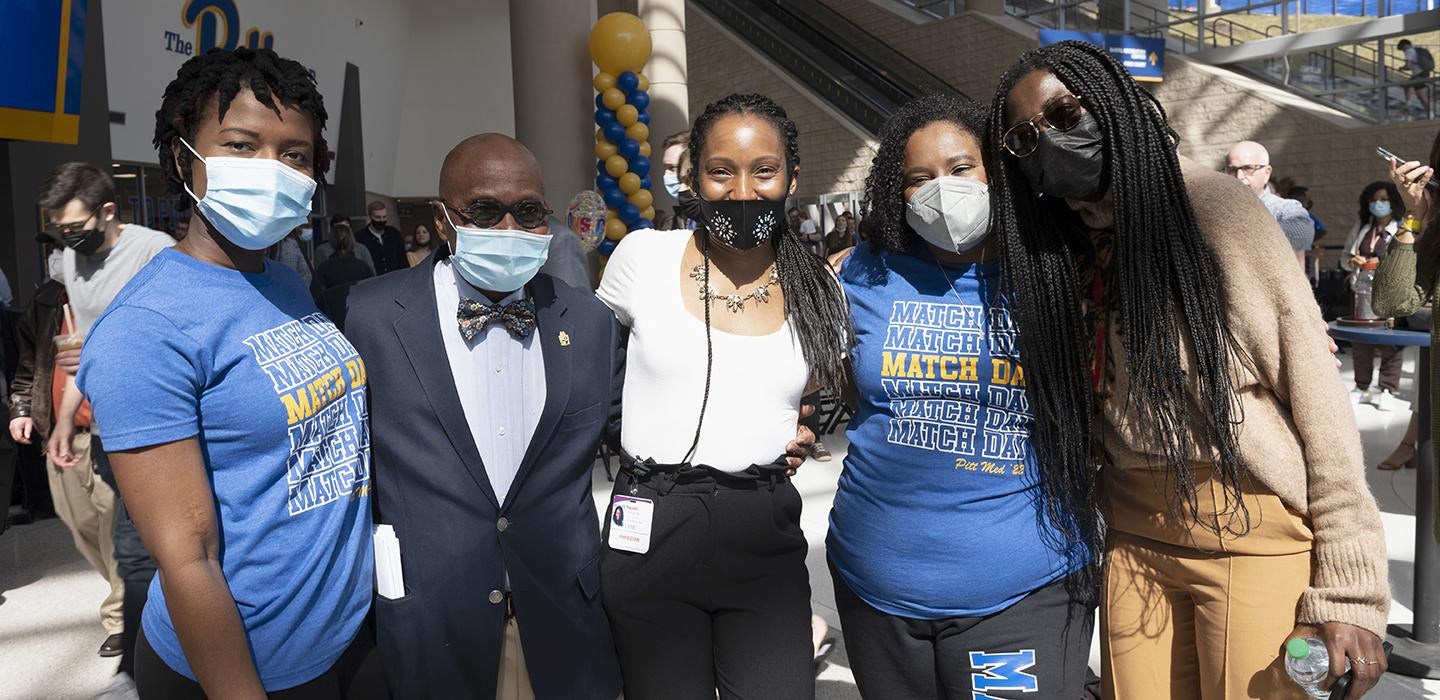
Subscribe to Pittwire Today
Get the most interesting and important stories from the University of Pittsburgh.Music and nervous chatter filled the Petersen Events Center’s Thomas E. Richards Family Lobby as more than 100 graduating Pitt medical students and their loved ones waited to find out where the future doctors will spend the next few years of their lives.
Students surrounded a table dotted with envelopes that held the results of their residency placements. At precisely noon on March 18, they opened those envelopes along with thousands of other medical students across the country as part of Match Day 2022.
Each year on the third Friday in March, fourth-year medical students around the United States simultaneously learn to which residency program they have matched through the National Resident Matching Program (NRMP). Though they will soon graduate with a medical degree, they must next complete training in a specialty, one of the steps toward becoming licensed to practice medicine.
“I’m proud of each and every one of these students,” said Alda Maria Gonzaga, associate dean for student affairs in the School of Medicine. “Based on where they matched, they’re going to receive outstanding training.”
In the months leading up to Match Day, students interview with specialty programs at different institutions. When both the student and program rank each other highly, NRMP software uses an algorithm to “match” applicants to open residency slots in these programs. Earlier in the week, students found out whether they matched to a program, just not which one.
In his remarks to the students, Anantha Shekhar, senior vice chancellor for the health sciences and John and Gertrude Petersen Dean of the School of Medicine, said, “Match Day is a testament to your hard work and resilience, especially during the pandemic.”
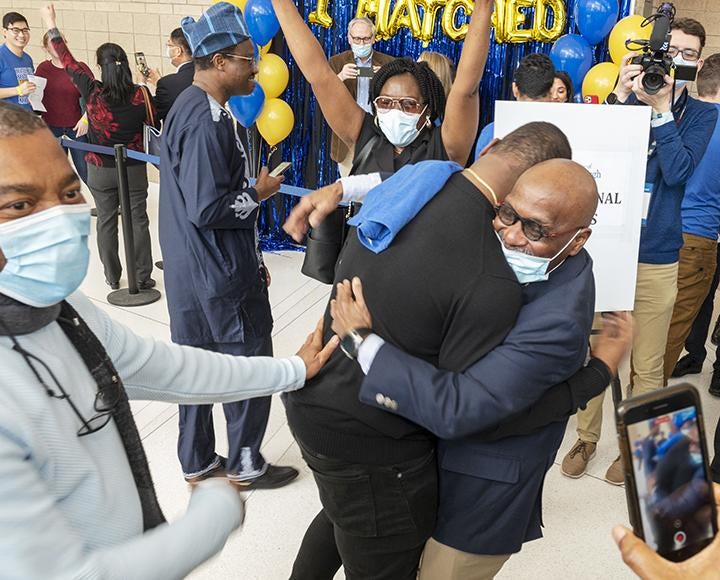
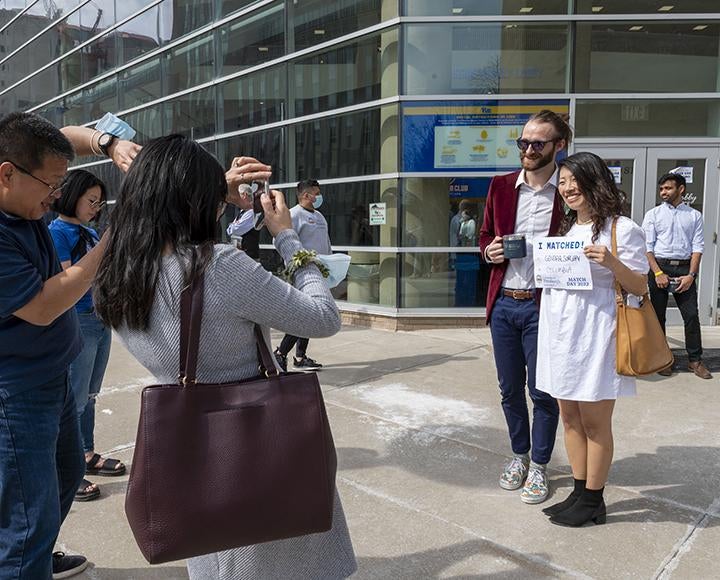
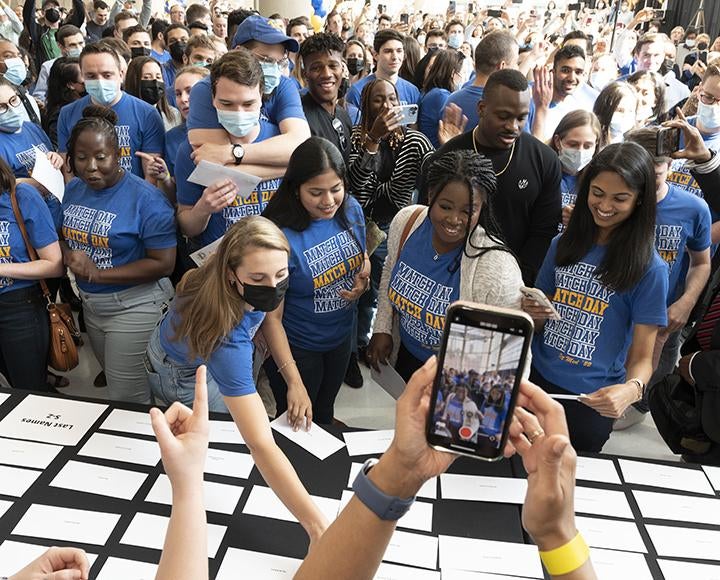
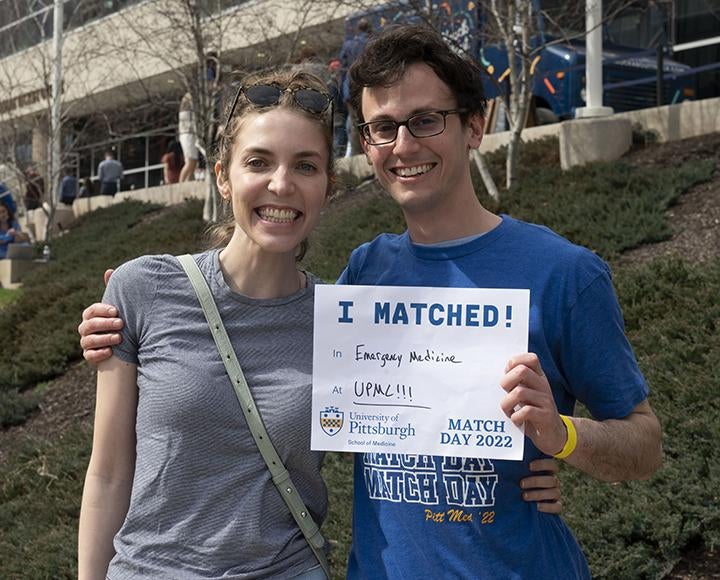
As with every year, the Class of 2022 at Pitt had exceptional results — 95% of students matched. The field with the largest number of students matched was primary care, with hospital-based specialties a close second. The programs with the largest numbers of students matched are medicine, pediatrics, surgery, and obstetrics and gynecology. Some students matched to UPMC and will remain in Pittsburgh, while others will move to different parts of the country.
“I’m so thankful and humble — and grateful to my family and mentors,” said Edward Sim, who matched to a research program in otolaryngology and head and neck surgery at Mass Eye and Ear through Harvard Medical School. “I’m excited to be the best doctor I can be.”
— Maureen Passmore


